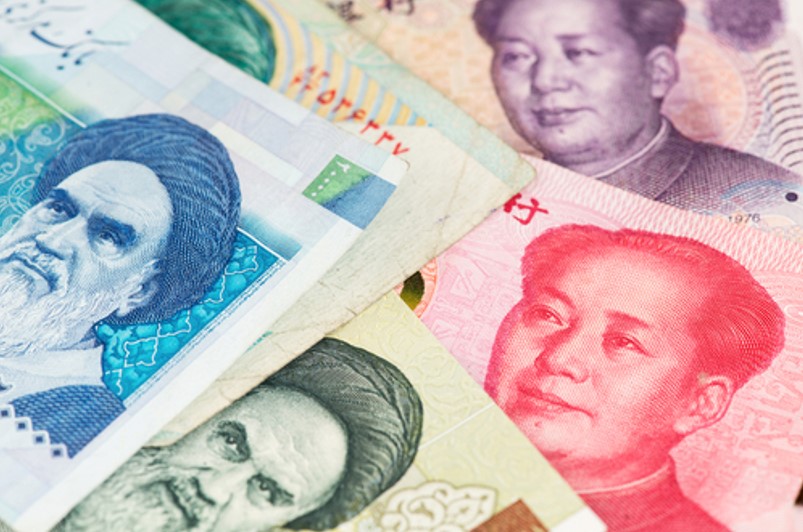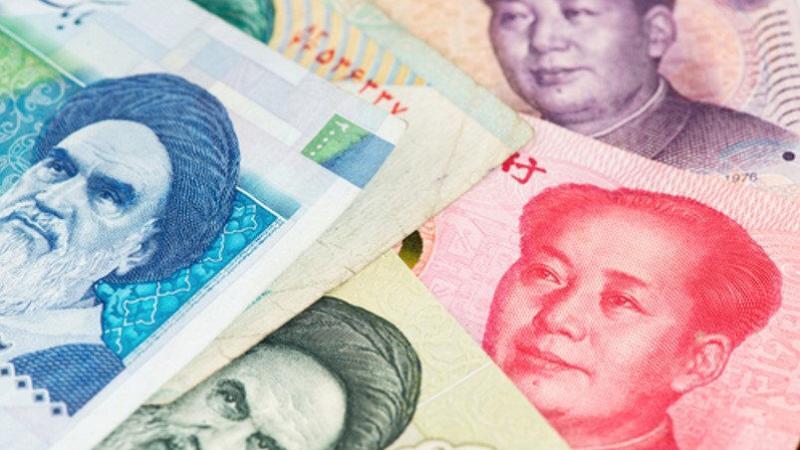Abstract: China’s apparent motivations for mediating peace in the Middle East span economic interests, citizen security, and national security. At the same time, there exists a less intuitive driver that extends beyond the material domain and into the normative realm: mediation is a tool to reshape global governance and advance a more multipolar world order. To that end, Beijing’s various mediation efforts are undergirded by principles, such as “non-interference,” “peace through development” and “community with a shared future,” Which China espouses. While these principles appear universal at face value, China’s approach to mediation belies a neutral intent founded squarely on a simple understanding of these principles. Moreover, a different story begins to unfold in the context of China’s nascent rhetoric surrounding global governance and its shifts in posture towards the United States and the West. These shifts have already begun to play out on the global stage via organisations, such as the United Nations, and on the ground through organisations and initiatives, such as the Shanghai Cooperation Organization (SCO), the Belt Road Initiative (BRI), and the Global Security Initiative (GSI). A close examination indicates that China’s approach to mediation in the Middle East dovetails with its goal to fundamentally alter the existing global governance architecture and mould it according to China’s long-term interests.
Problem statement: How to understand the implications of China’s mediation efforts in material and normative domains over the past decade?
So what?: The importance of mediation in terms of China’s ability to impact global governance is yet to be seen. Nevertheless, policy analysts would do well to pay close attention to China’s behaviour in the realm of mediation and continue to monitor the gradual changes that are already taking place due to China’s increased interest and involvement in the Middle East. Furthermore, China’s mediation efforts in the Middle East may indicate what can be expected of it in other regions.

Source: shutterstock.com/Mc_Cloud
China – A Peace Mediator
In recent times, China has attempted to mediate peace in the context of both formalising relations between Saudi Arabia and Iran and through its diplomatic involvement in the Russia-Ukraine war.[1], [2] These overtures are a continuation of a trend that has seen a stark rise in China’s global conflict mediation efforts, which began when Xi Jinping rose to power in November 2012. The interests driving Chinese mediation are diverse, spanning material and normative domains while serving domestic and foreign policy goals.
China has attempted to mediate peace in the context of both formalising relations between Saudi Arabia and Iran and through its diplomatic involvement in the Russia-Ukraine war.
Economic Interests
China’s economic interests represent one of the factors driving its motivation to mediate peace. This is acutely apparent in the Middle East and North Africa, particularly in the fields of energy, infrastructure, and innovation technology. Energy security sparked China’s interest in the Middle East, while the Belt Road Initiative (BRI) aided China in its pursuit of greater access to the region while cultivating leverage and influence.
After four decades of growing Chinese economic presence, the Middle East provides nearly half of China’s oil imports and roughly a fifth of its liquefied natural gas (LNG). Saudi Arabia currently ranks as China’s largest crude oil supplier, having provided China with 87.49 million tons in 2022 alone.[3] In November 2022, China signed a USD 60 billion 27-year deal for LNG with Qatar.[4] This particular deal indicates that the Middle East continues to be a vital economic point of interest for China as it pivots towards less carbon-rich fuel sources.
Regional stability directly impacts the regional energy economy and, by extension, China’s energy economy. For decades, Saudi Arabia and Iran have engaged in a proxy war, providing arms, training, and financial support to militias and political movements across Bahrain, Iraq, the Palestinian Territories, Lebanon, Syria, and Yemen. For instance, in September 2019, Iranian-supported Houthi rebels launched drone attacks on Saudi Aramco facilities resulting in severe disruption to global energy markets.[5] Brent crude oil spiked in cost by 20%, resulting in a USD 97 million increase in daily oil expenditures.[6] With such high economic stakes, China has a significant interest in employing mediation to promote regional peace. Beijing’s goal to maintain domestic economic stability requires it to do its utmost in ensuring that a similar scenario does not present itself in the future. China has become the Middle East’s largest trade partner and a significant source of investment, infrastructure, and technology for most countries in the region. Between 2005 and 2022, Chinese investments and contracts in the Middle East and North Africa totalled USD 273 billion.[7] In 2021, Chinese BRI investments in the region increased by an estimated 360%. Construction capital in the region rose by 116% year-over-year between 2020 and 2021.[8] Regional stability, including in the Persian Gulf, remains vital to these economic security interests.
Securing Citizens Abroad
Chinese economic security and the security of Chinese citizens in the Middle East are intertwined concerns that could be mitigated by mediation efforts. The impact of Libya’s instability during the Arab Spring on the Chinese economy, and its citizens abroad, validates this assertion. Prior to the uprisings in Libya, China maintained USD 20 billion in investments and 75 active companies in the country.[9], [10] During the Arab Spring, China avoided diplomatic involvement, focusing on the immediate priority of evacuating tens of thousands of its citizens. Meanwhile, Chinese commercial operations in Libya incurred losses of billions of dollars.[11] This historical moment highlights the cost that China pays politically and economically when it fails to engage in mediation efforts that comprehensively address relevant risks proactively.
During the Arab Spring, China avoided diplomatic involvement, focusing on the immediate priority of evacuating tens of thousands of its citizens. Meanwhile, Chinese commercial operations in Libya incurred losses of billions of dollars.
The Arab Spring is not an isolated example of how the security of Chinese citizens abroad impacts domestic economic and political affairs. In 2004, two terrorist incidents targeting Chinese nationals in Kunduz, Afghanistan, and Gwadar, Pakistan, claimed the lives of 14 Chinese citizens, raising alarm across China.[12] Chinese citizens, influential private companies and state-owned enterprises reacted by demanding that China’s leadership strengthen security measures for Chinese citizens and businesses operating in the region.[13] In short, mediation is indispensable to China as it navigates diplomatic and economic challenges in regions suffering from political instability and terrorism.
That said, the relationship between Chinese security and its corresponding involvement in international affairs is not always so obvious. Nevertheless, there are convincing indications that these considerations consistently contribute to China’s decision-making process in the area of citizen security abroad. For example, during the 2015 conflict between Iranian-backed Houthi and pro-Hadi fighters in Yemen, China voted in favour of Security Council Resolution 2201, which demanded that Houthis withdraw forces from government institutions in Sanaa and abide by previous negotiation outcomes.[14] Once Saudi Arabia and other Arab states had initiated airstrikes against the Houthis in March 2015, however, China remained silent. Some have argued that China was eager to expand ties with Saudi Arabia, and thus had no interest in antagonising the Kingdom.[15] However, according to I-wei Jennifer Chang, a Research Fellow at the Global Taiwan Institute, “the Chinese government was primarily concerned about the security of its citizens in Yemen.”[16] This motivation is evidenced by Beijing’s dispatch of the People’s Liberation Army Navy (PLAN) to evacuate 629 Chinese citizens and 279 foreign nationals from Yemen.[17]
Regardless of the outcome, recent events indicate that existing concerns relating to the security of Chinese citizens in the Middle East are providing impetus for China to mediate regional conflicts. On January 17, 2022, a drone attack triggered a fuel tank blast at a storage facility in Abu Dhabi, resulting in the death of two Indians and a Pakistani working for oil giant ADNOC.[18] In the following weeks, with the aid of United States’ (US) Central Command (CENTCOM), the UAE intercepted several ballistic missiles and drones launched by Houthis towards Abu Dhabi.[19] No Chinese people were killed in these attacks. Still, such events undoubtedly threaten the lives of many Chinese citizens. After all, the Chinese population in the region has grown to be in the hundreds of thousands. Reports suggest that the UAE alone is home to more than 200,000 Chinese residents and 6,000 businesses.[20] Chinese citizens are valuable tools for Beijing to strengthen and sustain its economic, cultural, and political influence abroad. The utility of an elevated Chinese civilian presence in the Middle East behooves a corresponding increase in Beijing’s involvement in international conflict mediation to advocate for its citizens’ security.
Protecting Security Interests
While China’s involvement in international security issues in the Middle East has varied in depth and degree, it has consistently shown a willingness to mediate in Afghanistan and Pakistan — countries that border China’s western region of Xinjiang. China’s interest in conflict mediation in these countries, and others in the Middle East, is closely tied to its domestic terrorism concerns.
China fears that extremist Islamic elements from across the Xinjiang border could encourage radicalisation among the Uyghur people. These fears are not entirely unfounded. In 2011, during the Arab Spring, 5,000 Uyghurs reportedly travelled to fight alongside Jihadist groups against the Bashir Al Assad regime in Syria.[21] Furthermore, according to Chinese government data, over 200 terrorist attacks took place on the mainland between 1990 and 2001, claiming 162 lives and injuring 440 people.[22] To address these concerns, China has adopted a zero-tolerance approach to terrorism while seeking to promote peace and stability in its western regions through diplomacy and economic cooperation.[23]
Despite China’s vested interest in counter-terrorism mediation in Afghanistan and Pakistan, its involvement in these regions has been tangential. China’s mediation efforts have suffered from the principle of “non-interference” to the degree that they have proven largely ineffectual. For instance, in 2015, the Asian Development Bank (ADB) and Pakistan signed a loan of USD 42.9 million to upgrade water management and irrigation systems in Pakistan’s Federally Administered Tribal Areas (FATA).[24] The goal of this agreement was, in part, to promote economic development in the region and reduce the appeal of extremist groups by improving the accessibility of jobs, infrastructure, and education. However, whether this project has succeeded in achieving this goal remains unclear.[25] In Afghanistan, China has often emphasised that solutions to internal conflict must be “Afghan-led and Afghan-owned.”[26] In 2015, China facilitated meetings between the Taliban and Afghan government representatives.[27] However, beyond providing a platform for antagonistic parties to conduct dialogue, Beijing offered little by way of practical solutions or encouraging further negotiation following these meetings.
China’s mediation efforts have suffered from the principle of “non-interference” to the degree that they have proven largely ineffectual. For instance, in 2015, the Asian Development Bank and Pakistan signed a loan of USD 42.9 million to upgrade water management and irrigation systems in Pakistan’s Federally Administered Tribal Areas.
In most cases, China’s mediation activities are soft and abstract. However, one example of a relatively more comprehensive intervention stands out. In 2016, Moscow hosted the third Russia-China-Pakistan Trilateral Dialogue, which resulted in a trilateral agreement “to remove certain [Taliban] figures from [United Nations] sanctions lists as part of efforts to foster a peaceful dialogue between Kabul and the Taliban movement.”[28] Afghani Parliamentarians were outraged and called the Dialogue out on interfering with its internal affairs.[29] Then, in 2021, China hosted the Trilateral Foreign Ministers’ Dialogue, involving Afghanistan and Pakistan, which focused on promoting political reconciliation in Afghanistan and countering terrorism in the region.[30] The inclusion of Afghanistan in this trilateral dialogue indicates China’s carefully curated strategy in ensuring that it is able to continue involvement in counter-terrorism mediation processes and gain access, if possible, to rich mineral reserves while maintaining a perceived non-interference posture.
Although China’s primary focus revolves around addressing domestic and border security concerns in the realm of “separatism, extremism and terrorism”, it has sought to mediate these issues in Middle Eastern countries as far-flung as Syria, Saudi Arabia, Iraq, and Iran. These efforts are motivated by a general objective of regional security and threats disseminated via terrorist groups encouraging terrorism in China. In 2017, Syria-based ISIS threatened China in a 30-minute video in which a militant declared, “Oh, you Chinese do not understand what people say. We are the soldiers of the Caliphate, and we will come to you to clarify to you with the tongues of our weapons, to shed blood like rivers and avenge the oppressed.”[31] In an effort to encourage peace across Syria during his second 2021 tour of the Middle East, former Chinese Foreign Minister Wang Yi “urged outside countries to refrain from seeking another power transition in Syria, scrap unilateral sanctions against the country, endorse its fight against terrorism and help the nation fix its internal political rifts.”[32] In other words, Wang explicitly encouraged countries to promote security by supporting Syria in its efforts to seek reform from within the status quo.
Although China’s primary focus revolves around addressing domestic and border security concerns in the realm of “separatism, extremism and terrorism”, it has sought to mediate these issues in Middle Eastern countries as far-flung as Syria, Saudi Arabia, Iraq, and Iran.
Overall, China’s efforts to mediate tensions in the Middle East seem to have yielded few concrete results. Furthermore, China’s hypothesis that a renewed relationship between Saudi Arabia and Iran will stem the spread of radical Islamic ideologies, and yield increased stability in Yemen and across the Middle East, is yet to be proven.[33] Nevertheless, both of these points pale in immediate relevance to the fact that China’s diplomatic efforts in the Middle East have won Beijing significant prestige on the global diplomatic stage. In short, China’s approach to mediation is novel, often emphasising perception over substantive results. From this perspective, measuring the success of China’s mediation attempts is, at least for the moment, in the eyes of the beholder.
Comprehensive Security Efforts that Emphasise Self-Reliance
At face value, China’s efforts to mediate security issues in the Middle East are a natural extension of Beijing’s growing material interests and responsibilities in the aforementioned areas, including the economy, citizen security, and national security, especially concerning China’s western regions. However, a deeper analysis indicates that these efforts are also part of a broader strategy to effect fundamental shifts in the global order. These shifts serve to undermine the US-led order by catalysing a multipolar international governance architecture. Furthermore, indications in rhetoric and domestic policy discussion within countries in the Middle East concerning the nature of their engagement with China suggest that these changes may already be underway.[34]
Recently, China has hosted multilateral fora and presented nascent frameworks for restructuring security architecture in the Middle East. In September 2022, Wang Yi virtually attended the Second Middle East Security Forum, themed “Promoting a New Security Architecture in the Middle East,” hosted by the Chinese Foreign Ministry’s think tank.[35] During this forum, Wang Yi revealed a four-point proposal for a novel security framework, including a “new security concept” founded on common, comprehensive, cooperative and sustainable security, encouragement of local power-driven regional dominance, commitment to UN charter principles, and dialogue.[36] Prior to this, President Xi Jinping revealed the Global Security Initiative (GSI) in April 2022, seeking to cultivate partnerships in the Middle East, which will either coexist with or alter the current West-dominated global governance architecture.[37] The GSI’s vision and mission dovetail with existing initiatives designed to advance a multipolar world, including expanding the SCO and BRICS, creating parallel institutions like the Asia Infrastructure Investment Bank, and China’s already well-established BRI.
President Xi Jinping revealed the Global Security Initiative in April 2022, seeking to cultivate partnerships in the Middle East, which will either coexist with or alter the current West-dominated global governance architecture.
China’s top-down mediation techniques affect discourse and strategic thinking through sheer bravado, even when they lack concrete grassroots action and support to buttress them. This mediation approach may help Beijing mould the global security order to more closely meet its needs and expectations. As Sun Degang, director of the Center for Middle East Studies at Fudan University, asserts, the Middle Eastern security order is dictated largely by “discourse power.”[38]
China’s mediation efforts indicate that it is well aware of this correlation. China’s anti-American/anti-Western narratives are intended to undermine the US’ dominance in the region and build more unity between China and Middle Eastern countries, which have grown increasingly sceptical towards Western involvement in the region. China seeks to portray itself as a responsible stakeholder in international security, generating normative power.[39] Beijing employs concepts, such as “peace through development” and “community with a shared future,” to strengthen convincing discourse around its vision, offering alternatives to Western-promulgated norms like the “liberal peace” model, which has prevailed since the 1980s.[40] Furthermore, China’s saturation in media coverage serves to deplete America’s political capital, thus weakening its international influence.[41] This helps to explain why China focuses on international conflicts that accrue widespread media coverage and engages only in high-profile actions for maximum impact.
China’s saturation in media coverage serves to deplete America’s political capital, thus weakening its international influence.
While China’s mediation strategy is resulting in an evolving discourse that seeks to alter the global order in the long-term, it remains to be seen whether these changes will work in China’s favour. After all, a multipolar power structure creates opportunities for middle powers to reorient their relationships with great powers as they seek to extract benefits from both the US and China. If middle powers manage their domestic policy wisely, cooperate, and maintain a regional balance of power, they may be able to prevent both the US and China from exerting a monopolistic political or economic influence over them. If the middle powers achieve this, their utility to these overbearing powers could decrease and, ultimately, work against China’s interests.
Conclusion
Since Xi Jinping’s rise to power, China’s mediation efforts in the Middle East have ramped up significantly. Mediation is a tool that China can use to its benefit to managing immediate economic and security risks that have impacted, and could continue to impact, its domestic strength and stability. Upon closer examination, each smaller-scale mediation effort seems to contribute to a larger picture that indicates China’s aspirations to acquire increasing influence over the global security order for its long-term benefit.
Until the most recent Saudi Arabia-Iran deal, which China brokered to some extent, China’s mediation efforts have largely failed to bring about any lasting-peace. However, these efforts have generated large amounts of coverage and even shifted discourse around China’s identity, nature, and intentions, and global governance architecture. Even as China’s approach has hardly yielded immaculate results, it has shattered precedents, and precisely this novelty challenges the status quo. That said, the dire results of China’s failed mediation attempts cannot be overlooked. Failed mediation attempts could lead to a loss of credibility and reputation both regionally and globally while provoking frustration and resentment among conflicting parties – potentially exacerbating tensions and making future mediation efforts even more challenging. In terms of the broader geopolitical landscape, an inability to achieve successful mediation outcomes could lead to a loss of strategic advantage, as other powers would seek to fill the vacuum left by China’s failures: The US may retain its position of influence in the absence of effective Chinese mediation efforts, but it is also possible that other powers may seek to fill the void.
Until the most recent Saudi Arabia-Iran deal, which China brokered to some extent, China’s mediation efforts have largely failed to bring about any lasting-peace.
If China wants to secure sustainable economic development and political influence in the long run, it will likely need to discover reliable mediation methods that consistently render successful concrete outcomes. Without more effective mediation approaches, China throws caution to the wind and risks unexpected shifts in the status quo, which may ultimately counter its interests.
Dale Aluf is the research and strategy director at SIGNAL (Sino-Israel Global Network & Academic Leadership). His research examines the impact of China’s rise on Israel, the Middle East, and North Africa. Follow him on Twitter @AlufDale.
Bradley Berman is a research associate at SIGNAL. Bradley, proficient in Mandarin Chinese and Hebrew, has specialised in China, East Asia, the US, and Israel-based corporate reputational due diligence and risk assessment for the past seven years. He graduated with high honours from Princeton University with a bachelor’s degree in East Asian Studies.
The views contained in this article are the authors’ alone.
[1] Ahmed Aboudouh, China’s Mediation between Saudi and Iran is No Cause For Panic in Washington, Atlantic Council, March 21, 2023, https://www.atlanticcouncil.org/blogs/menasource/chinas-mediation-between-saudi-and-iran-is-no-cause-for-panic-in-washington/.
[2] Vincint Ni, China Signals Willingness to Mediate in Ukraine-Russia War, The Guardian, March 01, 2022, https://www.theguardian.com/world/2022/mar/01/china-mediate-ukraine-russia-war.
[3] Andrew Hayley and Muyu Xu, Saudi Arabia Stays Top Crude Supplier to China in 2022, Russian Barrels Surge, Reuters, January 20, 2023, https://www.reuters.com/markets/commodities/saudi-arabia-stays-top-crude-supplier-china-2022-russian-barrels-surge-2023-01-20/.
[4] Justin Dargin, What’s at Stake in the Massive China-Qatar Gas Deal, Carnegie Endowment, December 29, 2022, https://carnegieendowment.org/2022/12/29/what-s-at-stake-in-massive-china-qatar-gas-deal-pub-88696.
[5] Kareem Fahim and Steven Mufson, Saudi Arabia Oil Output Takes Major Hit after Apparent Drone Attacks Claimed by Yemen Rebels, The Washington Post, September 14, 2019, https://www.washingtonpost.com/world/drone-attacks-on-saudi-oil-facilities-spark-explosions-and-fires/2019/09/14/b6fab6d0-d6b9-11e9-ab26-e6dbebac45d3_story.html.
[6] Jonathan Fulton, After Aramco Attacks, China’s Middle East Interests are at Stake, Atlantic Council, September 20, 2019, https://www.atlanticcouncil.org/blogs/iransource/after-aramco-attacks-chinas-middle-east-interests-are-at-stake/.
[7] Umud Shokri, Iran-Iraq Competition in Regional Maritime and Overland Transit Corridors, Mei@75, April 11, 2023, https://www.mei.edu/publications/iran-iraq-competition-regional-maritime-and-overland-transit-corridors.
[8] Dr. Christoph Nedopil Wang, China Belt and Road Initiative (BRI) Investment Report 2021, Green FDC, 2022, https://greenfdc.org/wp-content/uploads/2022/02/Nedopil-2022_BRI-Investment-Report-2021.pdf.
[9] Chen Aizhu, Langi Chiang, Xu Wan and Judy Hua, UPDATE 3-China Urges Libya to Protect Investments, Reuters, August 23, 2011, https://www.reuters.com/article/china-libya-oil-idUSL4E7JN0Q120110823.
[10] Samuel Ramani, Where Does China Stand on the Libya Conflict?, The Diplomat, June 18, 2019, https://thediplomat.com/2019/06/where-does-china-stand-on-the-libya-conflict/.
[11] Linlin Liu, China Counting Financial Losses in Libya, GlobalTimes, March 04, 2011, https://www.globaltimes.cn/content/629817.shtml.
[12] Mathieu Duchâtel, Oliver Bräuner and Hang Zhou, Protecting China’s Overseas Interests, SIPRI Policy Paper, June 2014, https://core.ac.uk/download/pdf/210589473.pdf.
[13] Idem.
[14] I-wei Jennifer Chang, China and Yemen’s Forgotten War, United States Institute of Peace, January 16, 2018, https://www.usip.org/publications/2018/01/china-and-yemens-forgotten-war.
[15] Samuel Ramani, China’s Role in the Yemen Crisis, The Diplomat, August 11, 2017, https://thediplomat.com/2017/08/chinas-role-in-the-yemen-crisis/.
[16] I-wei Jennifer Chang, China and Yemen’s Forgotten War, United States Institute of Peace, January 16, 2018, https://www.usip.org/publications/2018/01/china-and-yemens-forgotten-war.
[17] Miwa Hirono, China’s Conflict Mediation and the Durability of the Principle of Non-Interference: The Case of Post-2014 Afghanistan, The ChinaQuarterly, March 04, 2019, https://doi.org/10.1017/s0305741018001753.
[18] Timeline: UAE under Drone, Missile Attacks, Aljazeera, February 03, 2022, https://www.aljazeera.com/news/2022/2/3/timeline-uae-drone-missile-attacks-houthis-yemen.
[19] Idem.
[20] Anna Zacharias, How a Growing Chinese Community Found a Home away from Home in the UAE, The National News, July 31, 2019, https://www.thenationalnews.com/uae/how-a-growing-chinese-community-found-a-home-away-from-home-in-the-uae-1.889406.
[21] Bassem Mroue and Gerry Shih, Chinese Jihadis’ Rise in Syria Raises Concerns at Home, AP News, April 22, 2017, https://apnews.com/article/syria-ap-top-news-al-qaida-international-news-islam-591f9b238c84477b87cfac68bfe169fc.
[22] Yoram Evron, China’s Anti-Terrorism Policy, INSS, December 2007, https://www.inss.org.il/wp-content/uploads/2022/12/fe-3900055296.pdf.
[23] China Voices ‘Zero Tolerance’ Against Terrorism, Xinhua News, October 09, 2014, https://covid-19.chinadaily.com.cn/usa/china/2014-10/09/content_18710322.htm.
[24] Mohammad Ismail Khan, ADB Provides $42.9 Million to Boost Farming in Pakistan’s Tribal Areas, ADB, April 17, 2015, https://www.adb.org/news/adb-provides-429-million-boost-farming-pakistan-s-tribal-areas.
[25] Integrating Pakistan’s Tribal Areas May Reduce Terror, Oxford Analytica, 2017, https://www.emerald.com/insight/content/doi/10.1108/OXAN-DB225316/full/html.
[26] Remarks by Ambassador Geng Shuang at Security Council Open Video Conference on Afghanistan, Permanent Mission of the People’s Republic of China to the UN, September 03, 2020, http://un.china-mission.gov.cn/eng/hyyfy/202009/t20200904_8401175.htm.
[27] Shannon Tiezzi, China Hosted Afghan Taliban for Talks: Report, The Diplomat, January 07, 2015, https://thediplomat.com/2015/01/china-hosted-afghan-taliban-for-talks-report/.
[28] Amina Khan, Russia-China-Pakistan Third Trilateral Dialogue on Afghanistan, Institute of Strategic Studies, January 17, 2017, http://issi.org.pk/wp-content/uploads/2017/01/Final_IB_Amina_dated_17-1-2017.pdf.
[29] Idem.
[30] Joint Statement of the Fourth China-Afghanistan-Pakistan Trilateral Foreign Ministers’ Dialogue, Ministry of Foreign Affairs of the People’s Republic of China, June 04, 2021, https://www.fmprc.gov.cn/mfa_eng/wjdt_665385/2649_665393/202106/t20210604_9170564.html.
[31] Samuel Osborne, ISIS Threatens China and Vows to ‘Shed Blood Like Rivers’, Independent, March 01, 2017, https://www.independent.co.uk/news/world/middle-east/isis-china-threaten-terror-attack-muslim-islamist-group-islamic-state-a7606211.html.
[32] Yunbi Zhang, FM: Let Syria Decide on its Own Future, ChinaDaily, July 19, 2021, https://global.chinadaily.com.cn/a/202107/19/WS60f4bc99a310efa1bd662aa2.html.
[33] International Conference on Peace and Security in Iraq (Paris), European Parliament, September 15, 2014, https://www.europarl.europa.eu/meetdocs/2014_2019/documents/sede/dv/sede240914parisconference_/sede240914parisconference_en.pdf.
[34] Peter Baker, Chinese-Brokered Deal Upends Mideast Diplomacy and Challenges U.S., The New York Times, March 11, 2023, https://www.nytimes.com/2023/03/11/us/politics/saudi-arabia-iran-china-biden.html.
[35] Tuvia Gering, Full Throttle in Neutral: China’s New Security Architecture for the Middle East, Atlantic Council, February 15, 2023, https://www.atlanticcouncil.org/in-depth-research-reports/issue-brief/full-throttle-in-neutral-chinas-new-security-architecture-for-the-middle-east/.
[36] Idem.
[37] Idem.
[38] Idem.
[39] Dale Aluf, China as a Conflict Mediator: Interests, Influence, and Implications for the Israeli-Palestinian conflict, SIGNAL, 2021, https://sino-israel.org/wp-content/uploads/2021/11/China-as-a-Conflict-Mediator-November-2021-1.pdf.
[40] Idem.
[41] Idem.






